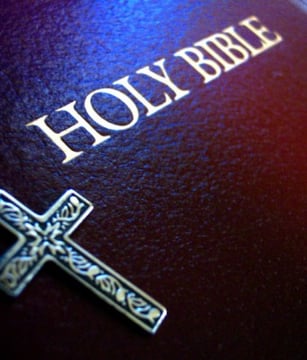 Daily Scriptures Reflection for Monday
Daily Scriptures Reflection for Monday
Scripture: Lectionary for 25th Sun. B cycle: Proverbs 3:27-34. Psalm 15: 2-3,3-4.5. Luke 8:16-18:
Luke uses the word wisdom the most among the Evangelists. In Greek it has a feminine connotation and has become an elegant name for women who have that as their first name. Jesus is called Sophia (Hochma in Hebrew) by theologians for he does personify it in his words and attitudes toward living on both a practical and spiritual level. The Gospel uses the image of lighting a lamp on a lamp stand which is meant to light up the whole room. It is not to be hidden or put under a table or bed. Common sense dictates this to us.
Wisdom is present in all three readings today: Proverbs, Psalm 15, and Luke 8:16-18. This virtue was never considered to be an abstract philosophical virtue but one that is down to earth yet highly desired for it, so to speak, sees the whole picture. In Judaism and in biblical traditions it should always lead the person who has it to some practical good deed for the benefit of others. We all like wise people who have a plan and a vision for us. Jesus certainly is the wisdom figure in the Bible.
Proverbs has an entire collection of wisdom in all of its genres which were so familiar to Jesus. Riddles, parables, paradoxes, aphorisms, and midrashic stories are part of wisdom and Proverbs has all of them in its collection. Some are borrowed from other religious cultures especially some from Egyptian thought. Wisdom is a universal gift for all nations. It can be seen in the young, the middle age stages of life, and in the older people in society. It is especially developed through experience and reflection upon our experiences.
In Judaism wisdom is characteristic of God’s spirit from on high and penetrates all things by reason of her pureness and truth. It is the breath and the power of God and the source of all that is true. Christians see how this is easily adapted to the Holy Spirit, Wisdom from on high. Jesus always speaks in the semitic manner of parables and wisdom sayings. To understand them one must first hear them, listen to them, and then reason about them and put them into action. “He or she who has ears, let them listen!”
The many verses of Psalm 15 today apply to wisdom thought and to those who practice wisdom in a practical way. Jesus is mindful of all that he has been taught he grew in wisdom and grace before God and us. He speaks of the light of a lamp that should not be put under a bed or a table. It is meant for seeing things in the room. We are called not to hide the sayings and wisdom that we learn from our parents and from Jesus and from our teachers and mentors. Even if we do hide what Jesus tells us, it will eventually come out and overcome the darkness.
In rabbinic thought light is associated with both the Torah and the Messiah. In Ketuvim 111, a, b we have this statement: “Whoever is slack in the Torah will never live again. Whoever makes use of the light of the Torah will revive {after death}; and whoever does not make use of the light of the Torah, the light of the Torah will not revive.”
We believe that Jesus knew and lived the Torah and that he is the Light of the World and the salvation of his people. (Luke in the prayer of Simeon in the Temple). Amen.
Copyright 2012 Fr. Bertrand Buby, S.M.
About the Author

Guest
We welcome guest contributors who graciously volunteer their writing for our readers. Please support our guest writers by visiting their sites, purchasing their work, and leaving comments to thank them for sharing their gifts here on CatholicMom.com. To inquire about serving as a guest contributor, contact editor@CatholicMom.com.


.png?width=1806&height=731&name=CatholicMom_hcfm_logo1_pos_871c_2728c%20(002).png)
Comments